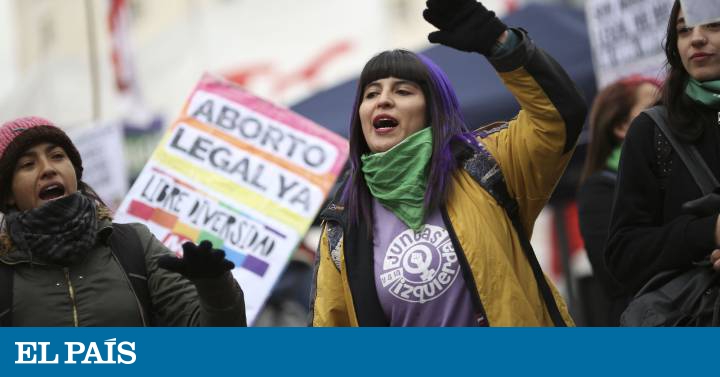Everything indicates that Argentina will move towards the legalization of abortion in 2020. Although it is a struggle that has been going on for decades, the massive mass that it achieved in 2018 and which manifested itself in the streets of Buenos Aires gave it an impossible impulse to stop. That year the debate was historic: it came to Congress and the Voluntary Interruption of Pregnancy bill managed to pass as Deputies; however, after extensive debate, he was rejected in the Senate
Current regulations provide for legal abortion on two grounds: if the life or health of the mother is in danger, or if the pregnancy is the result of a violation. In this context, the National Campaign for the Right to Legal, Safe and Free Abortion and the women's movement have been fighting for decades to achieve the decriminalization and legalization of abortion in Argentina. If this conquest were achieved, it would allow a woman, teenager or girl to access an abortion without invoking a cause. It is likely that the standard establishes a specific period within which the practice of abortion can be accessed, as is the case in most countries that have liberalized abortion in Europe and other parts of the world.
Abortion is a basic health service and its legalization is key. It is proven that his ban has not discouraged his practice and has only pushed women into hiding, putting their lives at risk. It is a public health problem. Ending a pregnancy is a decision made by millions of women and people with the ability to gestate, that's why women have been raising their voices to decide on our own body.
MORE INFORMATION
Argentina approves a protocol to guarantee non-punishable abortions- Argentina approves a protocol to guarantee non-punishable abortions
Anyone could ask: How can Argentina move from the rejection of the 2018 legislative power to the possible approval in 2020? Mauricio Macri was president when the legalization of abortion was rejected by the Senate, and although at that time his position was not explicit, in 2019 he was blunt and said he was in favor of the sectors that are against the law, which are declared "Provida". At the same time, who was one of his bishops in the Upper House, Federico Pinedo, explained on Twitter that they had worked so that the law was not approved. But locked up by the economic crisis, Macri was not reelected. Thus, after the presidential elections in October, on December 10, 2019, Peronist Alberto Fernández took over.
Fernández came to power accompanied by a central figure on the scene of Argentine politics, Cristina Fernández de Kirchner, who when she was president had declared herself against abortion, but who, however, voted in favor of the voluntary termination of pregnancy in 2018. He then explained that his daughter had made her reflect and change her position. In those months of arduous debate, Alberto Fernández, who worked as a law professor at the University of Buenos Aires, used his Twitter account to demonstrate in favor of the decriminalization of abortion.
During the 2019 presidential campaign, Alberto Fernández highlighted the need to decriminalize abortion. After assuming, he reiterated it. It is expected that he will now announce the sending of the bill during the opening of ordinary sessions of the Congress, scheduled for this Sunday; an instance similar to the State of the Union Address held in the United States.
Peronism is the ruling force, has a majority in the Senate and can also achieve, with agreements, a majority in Deputies. However, the party does not have a unique position regarding abortion and varies according to the ideological-religious districts and belongings of each of the legislators. There is a paradox that Peronism may be the political space that contributes the most votes in Deputies to give half a penalty to the project and, at the same time, is responsible for the law not passing in the Senate.
Thus, the legislative change resulting from the elections casts certain doubts: some candidates expressed their positions without grays both for and against, others are still unknown to those who count the votes to try to predict the outcome. However, presidential systems grant the president a power, sometimes hypertrophied. Alberto Fernández, in a year that will be tough in economic terms for Argentina, has in the legalization of abortion one of his possible political triumphs in 2020. He may try, with impetus, to convince at least the members of his party.
The women's movement in Argentina has inspired the world for its energy: green handkerchief, they have taken the debate to the street, to the media, to houses and to Congress. The decriminalization and legalization of abortion is a struggle of Amnesty International many years ago; We are part of that green tide that hopes to get excited and celebrate when once and forever the right to abortion is law.
This year, what seemed impossible is more tangible than ever: legalization is at your fingertips.
Mariela Belski is executive director of Amnesty International Argentina
You can follow THE COUNTRY Opinion on Facebook, Twitter or subscribe here to the Newsletter.

